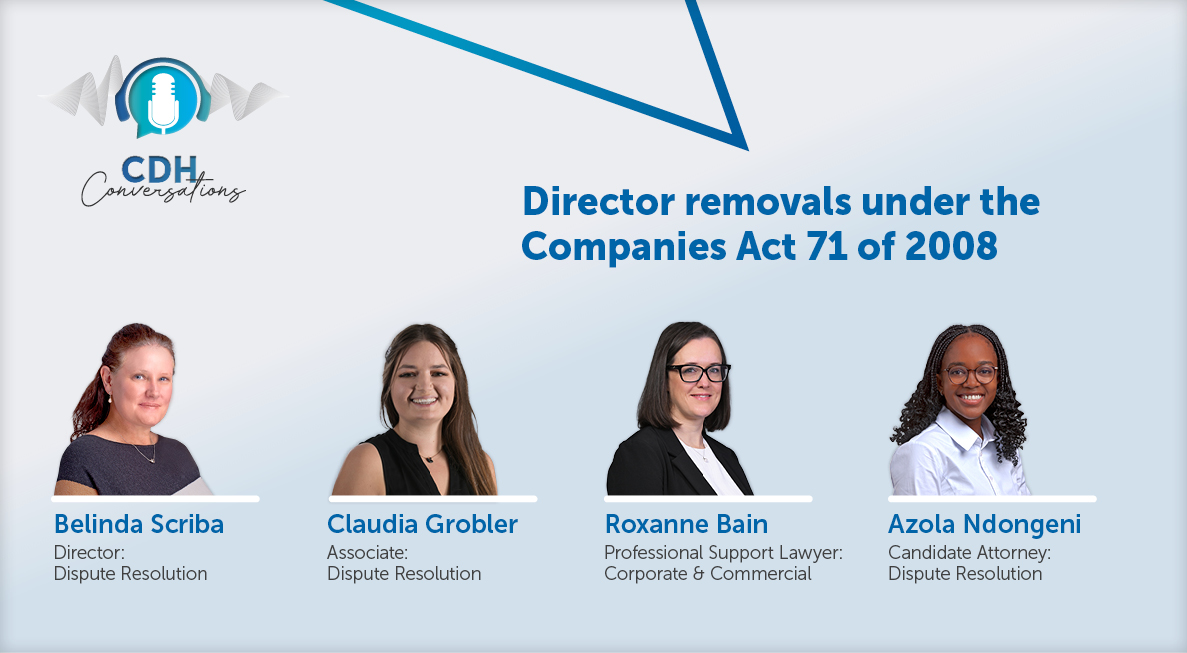Invensys exception application fails
On 3 September the Competition Tribunal (Tribunal) heard the exception application between Invensys Plc (Invensys), Invensys Systems (UK) Limited and Eurotherm Limited to the complaint referral brought by Protea Automation Solutions (Proprietary) Ltd (Protea) re the complaint referral between Protea, Invensys, the Invensys Group, EOH Holdings Limited and EOH Mthombo (Proprietary) Limited (fifth respondent).
Protea brought a complaint against Invensys on the basis that their exclusivity agreement with the fifth respondent had the ongoing effect of substantially preventing or lessening competition in contravention of various sections of the Competition Act, No 89 of 1998 (Act).
In Invensys' answering affidavit they submitted to the Tribunal that Protea's complaint referral should be dismissed and they should not be granted the opportunity to amend their referral on the following grounds:
- Protea's reliance upon s4 of the Act is misplaced as the fifth respondent and Invensys are not in a horizontal relationship;
- Protea has failed to provide sufficient material facts and details to support their allegation that Invensys is dominant in the market.
Furthermore Protea have failed to define the relevant market or markets with sufficient particularity;
- Protea have failed to provide facts on how the new distribution arrangement substantially prevents or lessens competition; and
- There is a misjoinder of the Invensys holding company which was not trading at the time.
The Tribunal noted that its approach to exception applications differs from that of the High Court in that each case must be decided on its own merits without an overly technical evaluation. Central to the Tribunals approach were the following three considerations:
- The complaint proceedings in the Tribunal are sui generis and consist of elements of both motion and trial proceedings in the High Court. A complainant is required to provide "a concise statement of the grounds of the complaint and the material facts or the points of law relevant to the complaint and relied upon by the complainant";
- The subject matter of the proceedings involves the intersection of law and economics and often requires complex economic analyses of the facts to advance a theory of harm. It is often the case that a particular set of facts could be seen through the lens of more than one section of the Act; and
- The Tribunal enjoys inquisitorial powers and is required to exercise these in its truth seeking functions and thus always enjoys a wide discretion to conduct its proceedings.
The approach followed by the Tribunal in this case confirmed the earlier sentiments expressed by the Tribunal in which they stated "notwithstanding an absence of express provision for them in our rules, we would be willing to consider hearing an exception when appropriate. We have also indicated that the approach to exceptions in our proceedings needed to take into account the sui generis nature of our proceedings; we are neither a civil court approaching pleadings in trial proceedings nor a criminal court. Our proceedings are adversarial but we also as an institution enjoy inquisitorial powers. We are guided by the need to conduct proceedings fairly and to the extent permissible, informally.”
The Tribunal further went on to discuss the remedies available under an exception application. They held in the case of exception applications brought on the basis of vague and embarrassing allegations or a failure to disclose the court usually grants the offending party an opportunity to amend its pleadings. On the other hand, in circumstances where the exception concerns a pure point of law dismissal of the case is often the appropriate remedy. The Tribunal held that the present case was distinguishable from the above as the application consisted of a mix of law and facts.
The Tribunal held that it would rarely dismiss a matter on the merits of a case without first satisfying itself that the prospects of success for a complainant are low and without first providing a party with an opportunity to clarify its case. It emphasised however that each case must be decided on its own facts and in this case dismissal was not the appropriate remedy.
The Tribunal held that fairness dictates that a party ought to be placed in a position to know the case it has to answer thus the Tribunal allowed Protea to file a supplementary founding affidavit to provide clarity and certainty to the proceedings.
The information and material published on this website is provided for general purposes only and does not constitute legal advice. We make every effort to ensure that the content is updated regularly and to offer the most current and accurate information. Please consult one of our lawyers on any specific legal problem or matter. We accept no responsibility for any loss or damage, whether direct or consequential, which may arise from reliance on the information contained in these pages. Please refer to our full terms and conditions. Copyright © 2026 Cliffe Dekker Hofmeyr. All rights reserved. For permission to reproduce an article or publication, please contact us cliffedekkerhofmeyr@cdhlegal.com.
Subscribe
We support our clients’ strategic and operational needs by offering innovative, integrated and high quality thought leadership. To stay up to date on the latest legal developments that may potentially impact your business, subscribe to our alerts, seminar and webinar invitations.
Subscribe




